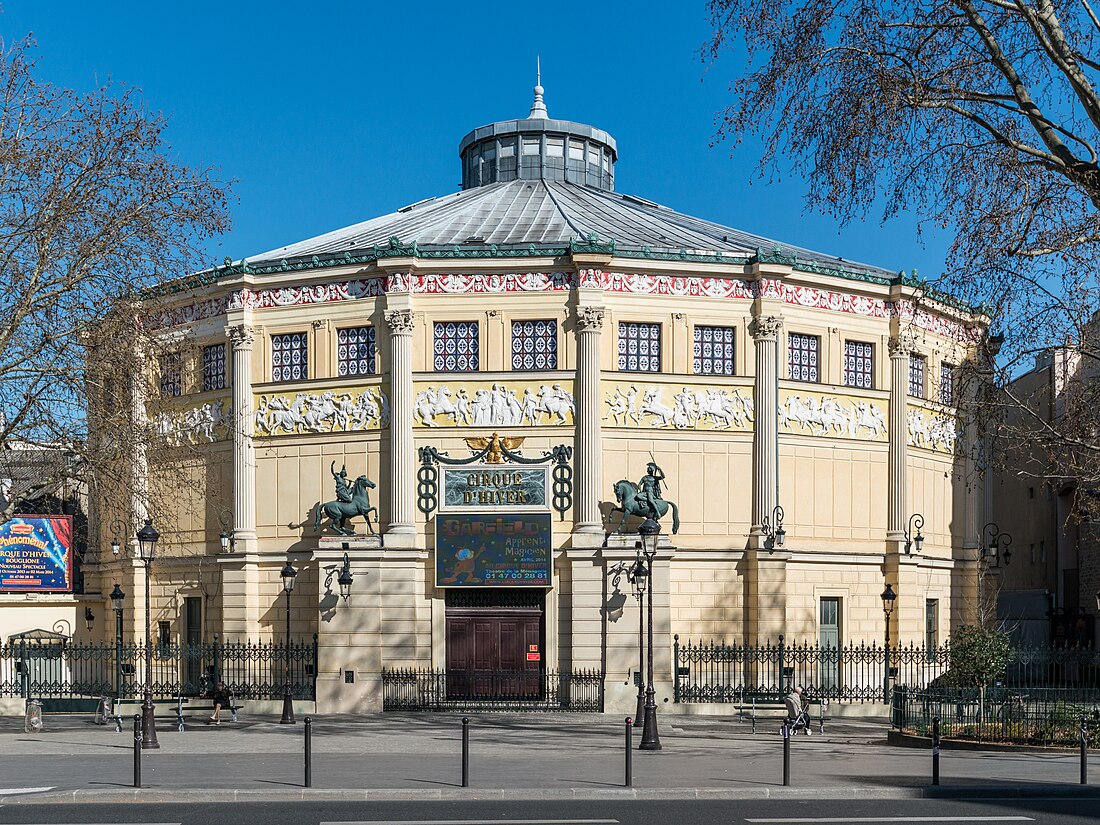Top Qs
Timeline
Chat
Perspective
11th arrondissement of Paris
Municipal arrondissement in Paris, Île-de-France, France From Wikipedia, the free encyclopedia
Remove ads
The 11th arrondissement of Paris (XIe arrondissement) is one of the 20 arrondissements of the capital city of France. In spoken French, the arrondissement is referred to as le onzième ([ɔ̃zjɛm]; "the eleventh").
The arrondissement, called Popincourt, is situated on the right bank of the River Seine. It is one of the most densely populated urban districts of any European city. In 2020, it had a population of 144,292. It is the best-served Parisian arrondissement in terms of number of Métro stations, at 25.[2]
Its borders are marked by three large squares: the Place de la République to the northwest, the Place de la Bastille to the southwest, as well as the Place de la Nation to the southeast.
Remove ads
Description
The 11th arrondissement is a varied and engaging area. To the west lies the Place de la République, which is linked to the Place de la Bastille, in the east, by the sweeping, tree-lined Boulevard Richard-Lenoir, with its large markets and children's parks. The Place de la Bastille and the Rue du Faubourg Saint-Antoine are full of fashionable cafés, restaurants, as well as nightlife; they also contain a range of boutiques and galleries. The Oberkampf district to the north is another popular area for nightlife. The east is more residential, with more wholesale commerce, while the areas around Boulevard Voltaire and Avenue Parmentier are livelier crossroads for the local community. In recent years this area has emerged as one of the trendiest parts of Paris.
On 13 November 2015, the arrondissement was the site (among others) of coordinated Islamic shootings and bombings, particularly at the Bataclan theatre, which left 130 dead. About 20 years earlier, another attack had taken place.[3]
Remove ads
Geography

The land area of this arrondissement is 3.666 km2 (1.415 sq mi; 906 acres).
The arrondissement consists of four quarters:
- Quartier Folie-Méricourt (41)
- Quartier Saint-Ambroise (42)
- Quartier Roquette (43)
- Quartier Sainte-Marguerite (44)
Demographics
Summarize
Perspective
The peak population of Paris's 11th arrondissement occurred in 1911, with 242,295 inhabitants, and so, 66,020 inhabitants/km2. In 2021, the arrondissement remains the most densely populated in Paris with 38,851 inhabitants/km2, and the densest urban district in Europe. It is accompanied by a large volume of business activity: 142,583 inhabitants and 83,870 jobs.
The population consists of a large number of single adults, though its eastern portions are more family-oriented. There is a strong community spirit in most areas of the eleventh, and it is interspersed with squares and parks.
Historical population
Immigration
Remove ads
Map

Places of interest

- Cirque d'hiver
- Saint-Joseph-des-Nations
- Sainte-Marguerite, Paris
- Église Saint-Ambroise
- ESCP-EAP
- Musée Édith Piaf
- Musée du Fumeur
- Arrondissement hall
- Bastille
Main streets and squares
Summarize
Perspective
Streets
|
|
|
|
Squares
|
|
|
Remove ads
References
External links
Wikiwand - on
Seamless Wikipedia browsing. On steroids.
Remove ads








